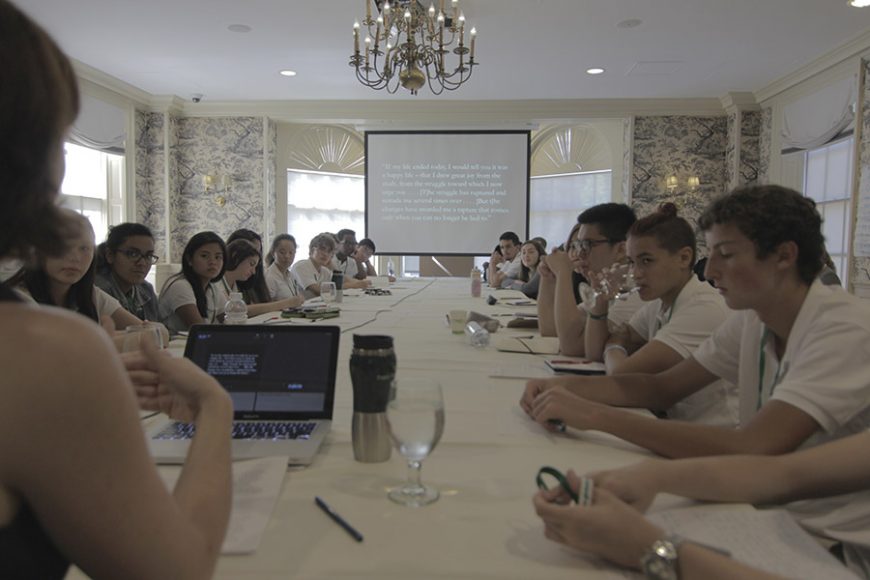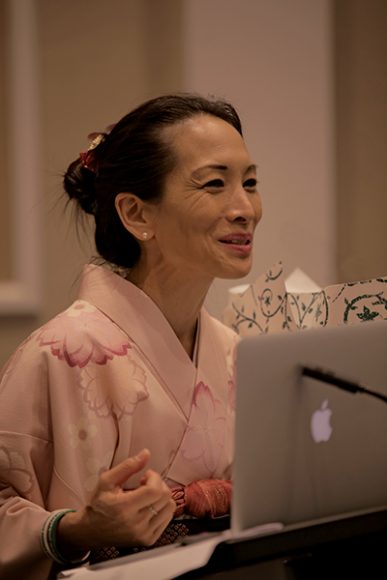Written by Jena A. Butterfield
When Yumi Kuwana was growing up outside Boston, her Japanese heritage often made her feel different from the other kids.
She learned painfully early on to question her cultural identity.
At age 8, Yumi’s family moved to Japan.
Though she’d been raised to speak Japanese competently, it was clear to peers in her new school that she was American. She didn’t belong in Japan either and suffered a rejection worse than she felt in the States.
Why?
Yumi was raised by her parents to be multilingual and globally savvy, a citizen of the world. Most would consider this an enviable advantage for future success. Yet from one side of the ocean to the other, Yumi’s multicultural background seemed an unnecessary obstacle.
“I was bullied,” she says as she explains what fuels her sense of purpose. “And so was my brother.”
The bullying was largely driven by the narrow worldview she experienced in school.
It led Yumi to what she now views as a quintessential problem of today — the lack of an education system that will nurture our young to operate on a global playing field. And it further led her to found the Greenwich-based nonprofit Global Citizens Initiative (GCI) in 2012. This is a yearlong program that gathers 28 students from around the world and helps in the development of a “Glocal Service Project.”
“Glocal,” Yumi explains, “is thinking globally but acting locally.” The program’s participants — high school students from 21 different countries — launch a year of social enterprise during an intensive nine-day summit on the Harvard University campus. The kids then take what they’ve learned from each other back to their home communities and get to work changing the world, town by town.
Students who are accepted into the program focus on a global issue they feel passionate about and work together to brainstorm solutions. Yumi knows that the exposure they gain from one another during the program is life-changing.
“Their worldview has been challenged,” she says with excitement. She sees firsthand that the young scholars’ problem-solving is benefited by perspectives that differ from their own.
During the summit, students are guided by educators from Philips Exeter Academy in New Hampshire, a school that uses the Harkness method of teaching. This nurtures critical thinking through discussion-based learning. The idea is to empower these kids to drive change themselves.
When they leave the summit, the students work in collaboration with mentors to develop and implement sustained change in their hometowns. The results of the program so far have been inspiring.
Bushra is reframing mindsets about recycling in Jordan. David is building showers for the homeless in Los Angeles. Esmatullah is promoting the rights of students in Kabul schools. Jenny is starting conversations among LGBTQI youth in Hong Kong. Lara is broadening educational access for young women in Turkey. And Molly from Greenwich Academy is “empowering Connecticut youth through the joy of dance.”
“It’s transformative for kids from Connecticut, too,” Yumi says of the mix of socioeconomic backgrounds. “The kids have a responsibility to each other. Bridging together the haves and have nots is important.”
One critical requisite of the program is that students then return to their local schools and engage their peers, leading the charge for the next group of scholars to carry the torch of global change. It is a ripple effect.
Yumi thinks that a program that engages the world’s youth to forge deeper connections with one another is critical for creating the next generation of ethical global leaders. To move that process along, GCI will next focus on connecting global innovators. Not only will they be duplicating this program in Japan with 28 different students but there are also plans to create a teacher-training workshop and teacher exchanges among the growing network of schools.
GCI’s recent launch of an online platform, GCI EdGE, will facilitate project management, social networking, coursework delivery and job opportunities. Yumi’s hope is that parents and educators will join the discussion, strengthening collaboration between scholars and their mentors and connecting ambassadors from different years.
“We are dealing with a globally disparate group,” Yumi says. “How do we keep them connected?”
In the end, Yumi’s dream is that her children will feel at home and confident wherever they choose to go in the world. And that, to her loyal team at Global Citizens Initiative, is a dream worth striving for.
For more, visit globalci.org.





